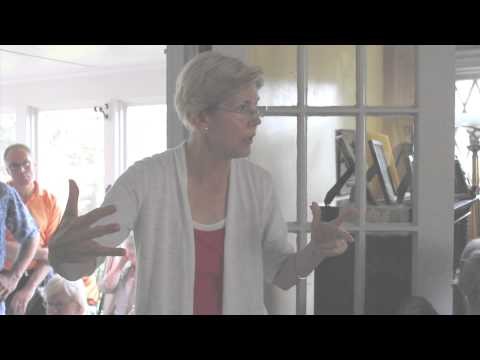How to Avoid Another FuturesFirm Blowup
Post on: 12 Апрель, 2015 No Comment

ENLARGE
Peregrine CEO Russell Wasendorf Sr. ‘I have committed fraud.’ Rick Chase/The Waterloo Courier
Ms. Garner, an independent futures and options broker in Nevada, had used PFGBest as the sole brokerage firm for her clients. Now her clients’ funds, totaling about $3 million, are unavailable as federal regulators investigate a roughly $215 million shortfall at the firm.
I had to read the email three times for it to sink in, and then I had to read it again, Ms. Garner says. It’s a complete nightmare.
PFGBest’s parent company, Iowa-based Peregrine Financial Group, on Tuesday filed for Chapter 7 bankruptcy in Chicago. On Friday, Chief Executive Russell Wasendorf Sr. was arrested and charged with lying to regulators, according to the U.S. attorney’s office. Mr. Wasendorf told investigators he stole more than $100 million from the firm over 20 years, according to court documents.
The collapse raises a question for investors: Are accounts at futures and options brokers safe if the firm collapses? And if not, how should investors try to protect themselves?
Scandal in Cedar Falls
The PFGBest debacle comes just nine months after the commodities brokerage MF Global Holdings failed and its holding company filed for Chapter 11 bankruptcy protection. As the firm’s finances worsened, MF Global employees tapped customer funds improperly. After the bankruptcy filing, a $1.6 billion shortfall emerged. Customers have since recouped 80% of the U.S.-based funds.
While it is still early in PFGBest’s unwinding, customers might have a similarly tough time collecting missing money, experts say.
When a securities firm becomes insolvent—such as in the case of Lehman Bros. Holdings or Bernard L. Madoff Investment Securities—the Securities Investor Protection Corp. makes sure customers’ cash and securities are returned to them. Customers can be reimbursed for up to $500,000, of which $250,000 can be in cash.
But SIPC doesn’t cover futures trades, except in rare cases when a customer has a cross-margin account holding both futures and securities, says Stephen Harbeck, chief executive of SIPC. We have an extremely narrow role, he says.
Likewise, brokerages aren’t banks, and don’t enjoy Federal Deposit Insurance Corp. protection. And while futures brokers are regulated by the Commodity Futures Trading Commission, the CFTC doesn’t provide insurance to protect investor funds. Nor does the National Futures Association, the industry’s self-regulatory organization.
At MF Global, customer funds were segregated from the brokerage’s funds until just before its collapse. At PFGBest, it appears customer funds were mingled for much longer, which will make it much less likely they will be repaid in full, says Michael Greenberger, a law professor at the University of Maryland and former director of trading and markets at the CFTC.
That means customers of PFGBest likely will have to rely solely on the firm’s bankruptcy trustee to recoup assets that should have been segregated, a process that can often take months and result in only partial paybacks.
I think they’re going to get pennies on the dollar, Mr. Greenberger says of PFGBest customers.
Braden Albert, a part-time trader in Cleveland, had $75,000 in an account at PFGBest. Mr. Albert said he already is assuming most of that money is lost.
If I can get 50% back, that would make me happy, he says.
While PFGBest customers are left waiting for the bankruptcy to unwind, the firm’s collapse is instructive for all investors, particularly those trading in futures, experts say.
The main lesson: It is important for anyone investing in futures to spread money across multiple brokerages.

Mr. Albert says he began using five firms after the 2008 financial crisis left him worried about the state of the U.S. financial system.
While it can be a hassle to set up several different accounts, it is essential to do so, says JonPaul Jonkheer, an executive vice president at Chicago futures broker IASG. In the case of MF Global, there was advance warning that the firm was having trouble, and several of Mr. Jonkheer’s clients were able to pull their money ahead of the collapse. But PFGBest’s demise was swift, leaving investors with almost no time to react.
Experts say customers should spend time on each firm’s website, making sure it has a risk disclosure, and check that it is regulated by the NFA.
The NFA’s website allows customers to research whether brokerages have been cited for any problems in the past.
But that research might not be enough. The NFA didn’t flag any problems at PFGBest before the firm’s collapse. And Mr. Albert says he researched rankings of brokerage firms in different publications and visited chat rooms dedicated to trading. He heard only positive reviews about PFGBest.
Ms. Garner says she wooed clients to PFGBest after MF Global’s collapse, promising them more safety. Now she is trying to find another brokerage—or several—to handle her clients’ accounts.
After receiving the initial email from PFGBest, she says, she thought about leaving the business, before reconsidering.
I thought, ‘If I can’t be confident my clients’ money is going to be safe sitting somewhere, how can I go on?’
Corrections & Amplifications
Russell Wasendorf Sr. is the CEO of Peregrine Financial Group Inc. In an earlier version of this article, his last name was incorrectly spelled Wassendorf.














